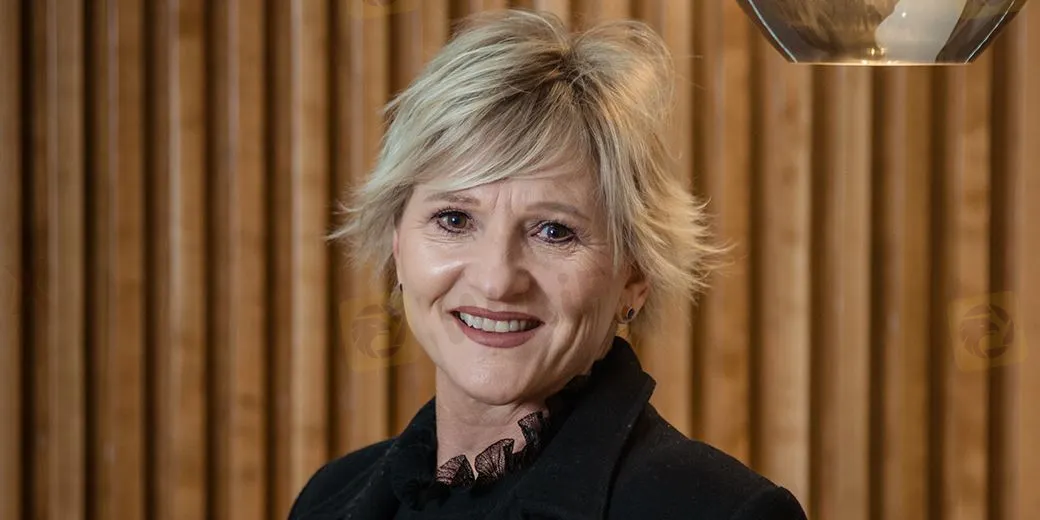简体中文
繁體中文
English
Pусский
日本語
ภาษาไทย
Tiếng Việt
Bahasa Indonesia
Español
हिन्दी
Filippiiniläinen
Français
Deutsch
Português
Türkçe
한국어
العربية
Momentum ‘highly likely’ to resurrect RMB Asset Management
Abstract:Momentum Investments CEO Jeanette Marais says it is time to go after the serious money.

It is ‘highly likely’ that Momentum Metropolitan Holdings (MMH) will move back into direct asset management, said Jeanette Marais (pictured), CEO of Momentum Investments.
Speaking to Citywire South Africa after the release of the MMH interim results to December 2021, Marais said that the group has a profitable linked investment platform business, with R225bn under administration. That makes it one of the big four in South Africa.
It also has a growing DFM, which now has R15bn under management – from R2.5bn four years ago – as well as an established institutional multi-manager. Yet MMH only has a marginally profitable unit trust business.
‘It’s no secret that the serious money in investments is in direct asset management businesses, Marais said.
Momentum Investments had healthy operating profit for the period of R489m, about a third of the entire groups normalised earnings. But 59%, or R267m, is provided by retail guaranteed life annuities.
In contrast, the entire platform and multi-management cluster provides just 29% of profit, or R140m.
Momentum used to own RMB Asset Management, a successful third-party asset manager. But after the unbundling of Momentum from FirstRand in 2010 – and the simultaneous merger with Metropolitan Life – then group CEO Nicolaas Kruger took the decision to move in the direction of multi-management.
Marais said that MMH still has pockets of active management. It has a fixed income team under former PSG portfolio manager Ian Scott, a listed property fund run in-house, and still runs a number of ‘legacy’ equity products through Momentum Securities. It owns 40% of BEE manager Aluwani, but this is considered to be an arms-length investment, she said.
Marais said that Momentum-branded funds account for less than 20% of the assets on the Momentum platform.
‘We are really an independent platform for now, as we are not trying to steer advisers towards our in-house range.’
Marais said that there had not been a final decision on whether to go ahead with returning to full service direct fund management. But since Hillie Meyer had become group CEO in 2018, the issue had often been discussed by the management team.
Disclaimer:
The views in this article only represent the author's personal views, and do not constitute investment advice on this platform. This platform does not guarantee the accuracy, completeness and timeliness of the information in the article, and will not be liable for any loss caused by the use of or reliance on the information in the article.
Read more

WikiFX Announcement: Suspension of Weekly Simulated Trading Competition
Since its launch in early 2023, the WikiFX Weekly Simulated Trading Competition has successfully hosted 99 consecutive rounds, attracting enthusiastic participation from traders worldwide and creating countless thrilling trading moments.

Retirement Savings Wiped Out: RM500,000 Lost to a Scammer named Richard Ong
A retiree was deceived into parting with more than RM500,000 after falling victim to an elaborate investment scam that promised substantial returns.

The Dark Side of Social Media Investments: How a Manager Lost RM2.08 Million
A Malaysian company manager suffered financial losses amounting to RM2.08 million after becoming the victim of an investment scam promoted through Facebook.

What Is the Role of Central Banks in Forex Trading?
Central bank policies shape market liquidity and interest rates, directly impacting exchange rate movements. Traders must closely monitor policy shifts.
WikiFX Broker
Latest News
Forex Market Outlook: Key Currency Pairs and Trading Strategies for March 24–28, 2025
Singapore Police Crack Down on Scams: $1.9M Seized, 25 Arrested
Gold Prices Swing Near Record Highs
XTB Opens New Dubai Office
Africa Cybercrime Bust: Over 300 Arrested in Fraud Crackdown
The Growing Threat of Fake Emails and Phishing Scams
Hong Kong Banks and Authorities Collaborate to Freeze Fraudulent Accounts Faster
SocialFi and the Forex Market: A New Era for Decentralized Social Trading?
Is Billion Bucks Fx Scam?
BaFin Halts USDe Token Issuance, Citing Serious Compliance Failures
Currency Calculator







